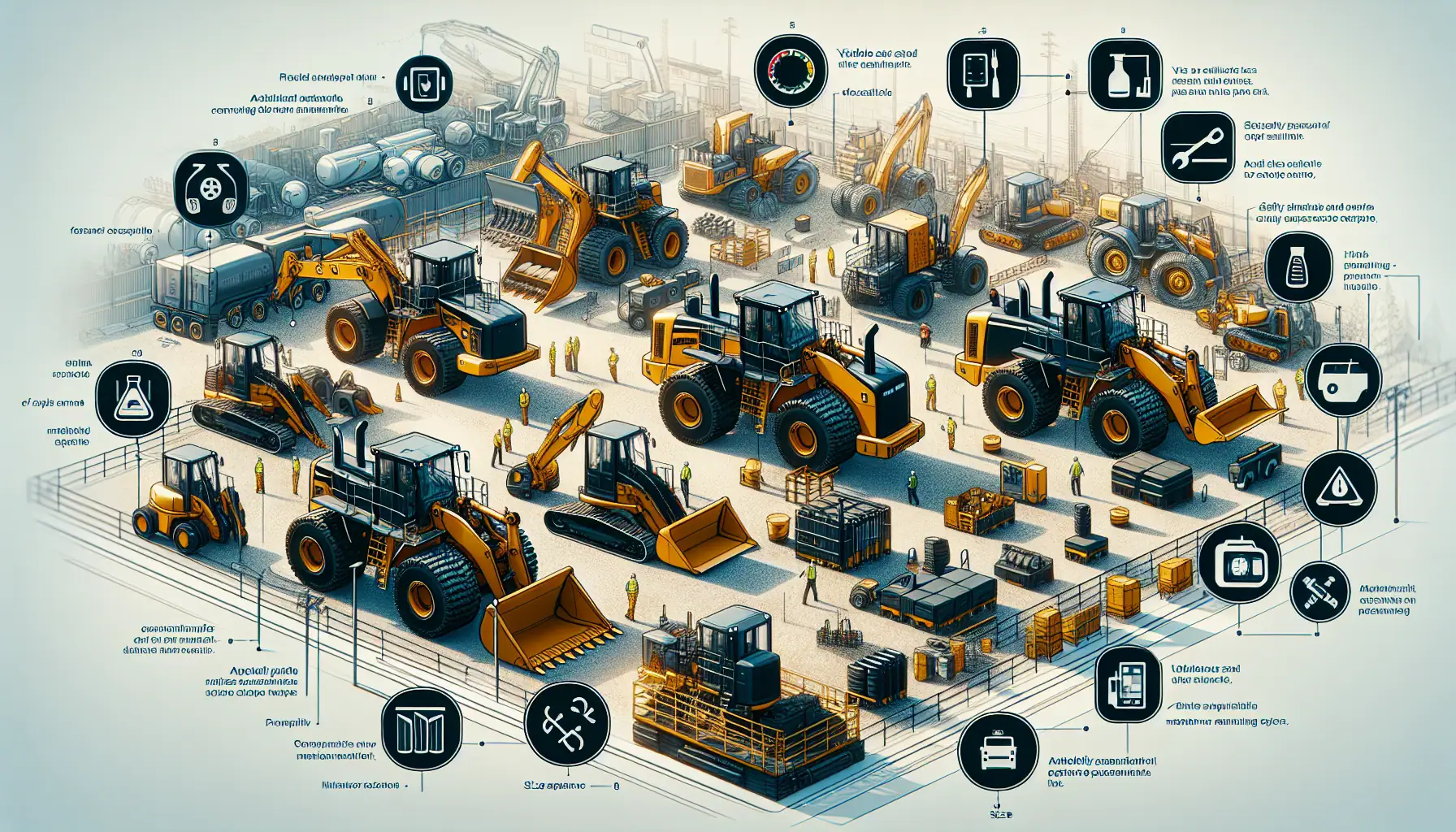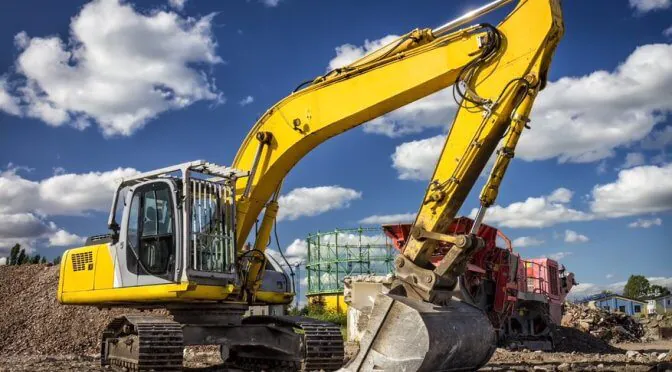Mini Excavator Rental Bremen, GA: Compact Solutions for Tight Spaces
Mini Excavator Rental Bremen, GA: Compact Solutions for Tight Spaces
Blog Article
The Essential Guide to Leasing Excavators for Building And Construction Projects
Leasing excavators for building tasks is an important decision that requires an extensive understanding of numerous factors to make sure both efficiency and cost-effectiveness. From picking the suitable excavator kind and dimension to discussing rental terms and ensuring safety procedures, each step plays a critical duty in the overall success of your job.
Kinds Of Excavators
Excavators come in different kinds, each designed to do particular tasks in building jobs. The most common type is the typical excavator, also referred to as a spider excavator, which is common on most task websites for its versatility in excavating, product, and trenching handling. These makers run on tracks, giving stability and wheelchair over irregular surface.
Another essential variation is the mini excavator, treasured for its portable dimension and dexterity. Perfect for tiny to medium-sized tasks, mini excavators stand out in constrained areas where bigger machines would struggle. They are frequently used for landscaping, utility work, and small-scale demolition.
For projects requiring extended reach, the long-reach excavator is important. Furnished with a longer boom and arm, these makers can function in locations that are tough to gain access to, such as across water bodies or deep excavations.
Lastly, there are specific excavators like the suction excavator, which uses high-powered followers to vacuum up dirt and particles, making it suitable for delicate underground energies. The dragline excavator, another specialized type, is typically used in large-scale civil engineering projects like canal dredging and mining due to its capacity to raise heavy loads over lengthy distances.
Choosing the Right Size
Choosing the appropriate dimension of an excavator is vital for the effectiveness and success of any construction task. The dimension affects not only the equipment's capability to deal with particular jobs however also the functional costs and site accessibility. Excavators can be found in different sizes, from small units ideal for small-scale residential tasks to big machines created for comprehensive business or commercial undertakings.
Understanding the extent of the project is vital when determining on the excavator dimension. Conversely, large-scale earthmoving operations, like road building and construction or big structure digs, demand the usage of basic or big excavators.
Consider the website's surface and accessibility factors too. Larger excavators may deal with challenges in tight or uneven areas, making smaller sized versions a lot more sensible. By extensively assessing these elements, building managers can ensure they pick an excavator dimension that enhances efficiency and minimizes project delays.
Rental Arrangement Basics

Equally essential is the comprehensive malfunction of expenses. This includes the everyday, weekly, or monthly rental anchor rates, and any kind of additional fees such as gas, delivery, or cleansing costs. It's suggested to ask about potential penalties for late heavy equipment movers returns or damages to avoid unforeseen expenses.
The problem of the excavator at the time of rental must likewise be well-documented. Make certain the contract consists of a comprehensive inspection report that keeps in mind any type of pre-existing damage. This safeguards you from responsibility for problems that existed prior to your rental period started.
Insurance insurance coverage is another essential aspect. Validate whether the rental company provides insurance policy or if you need to protect your very own plan. Ultimately, understand the terms for devices upkeep and repairs. Understanding your duties for upkeep during the rental duration will certainly help preserve the excavator in optimum functioning condition, reducing downtime and boosting task efficiency.
Upkeep and Safety Tips
When managing excavators on a construction site, adhering to proper upkeep and security protocols is crucial for making certain both functional efficiency and employee security. Lubricating relocating parts and ensuring fluid degrees are optimal can protect against expensive downtime and extend the machine's functional life expectancy.
Operators must be thoroughly trained and accredited to take care of excavators, recognizing the machine's controls and restrictions. It's vital to perform daily examinations, concentrating on safety and security features such as alarm systems, seat belts, and emergency situation shutoff switches.
Carrying out a durable maintenance schedule and promoting a culture of safety and security can minimize risks considerably. Constantly consult the producer's handbook for certain upkeep periods and safety and security standards. By prioritizing these aspects, building jobs can continue efficiently, decreasing disturbances and making certain a safe working setting for all employees entailed.
Cost-Saving Approaches
Reliable cost-saving approaches are critical for taking full advantage of the return on investment when see this website renting excavators for construction jobs. One crucial technique is to conduct an extensive needs analysis prior to rental. Recognizing the details demands of your project helps in choosing the right kind and dimension of excavator, preventing unnecessary expenditures on excessively specialized or extra-large equipment.
Many rental companies use versatile rates frameworks, especially for lasting leasings. Establishing a great partnership with the rental copyright can additionally result in loyalty discounts and better terms.

Lastly, take into consideration the total expense of ownership, including transport, gas, and insurance policy. Bundling these services with the rental agreement can typically lead to a much more beneficial overall package. By applying these methods, building and construction jobs can achieve substantial expense efficiencies while ensuring functional efficiency.
Conclusion
In final thought, the strategic choice and leasing of excavators for building tasks necessitate a complete understanding of excavator kinds, suitable sizing, and the ins and outs of rental agreements. Executing cost-saving strategies with thorough planning and settlement can better boost project efficiency while controlling costs.
From choosing the ideal excavator kind and dimension to negotiating rental terms and guaranteeing safety and security procedures, each step plays a crucial role in the overall success of your project. heavy equipment rental Bremen GA. The most common kind is the standard excavator, additionally known as a crawler excavator, which is ubiquitous on most job websites for its adaptability in material, digging, and trenching handling. By completely reviewing these aspects, building managers can ensure they pick an excavator size that optimizes productivity and minimizes task delays
Recognizing your duties for upkeep throughout the rental period will certainly assist keep the excavator in optimal functioning condition, decreasing downtime and improving task effectiveness.
In conclusion, the tactical choice and service of excavators for construction tasks necessitate a thorough understanding of excavator kinds, appropriate sizing, and the ins and outs of rental agreements.
Report this page